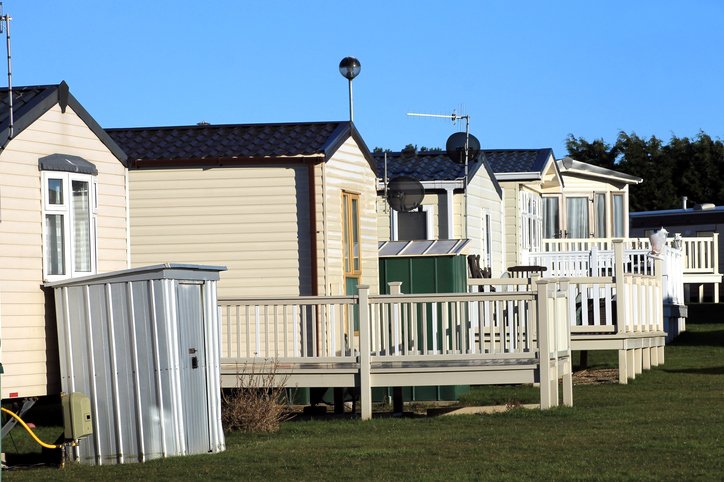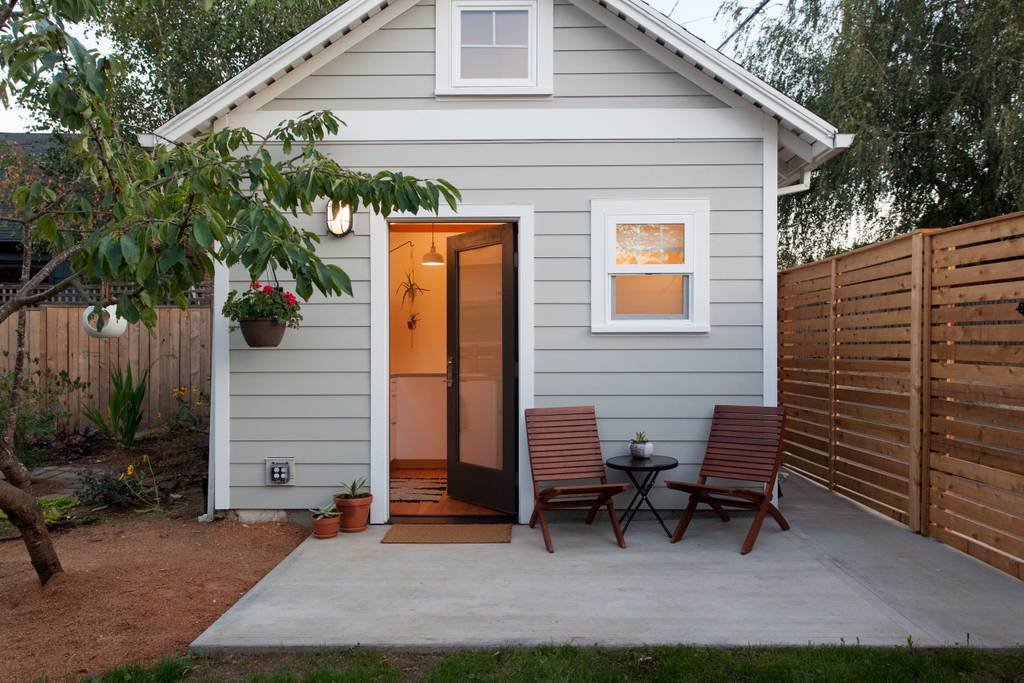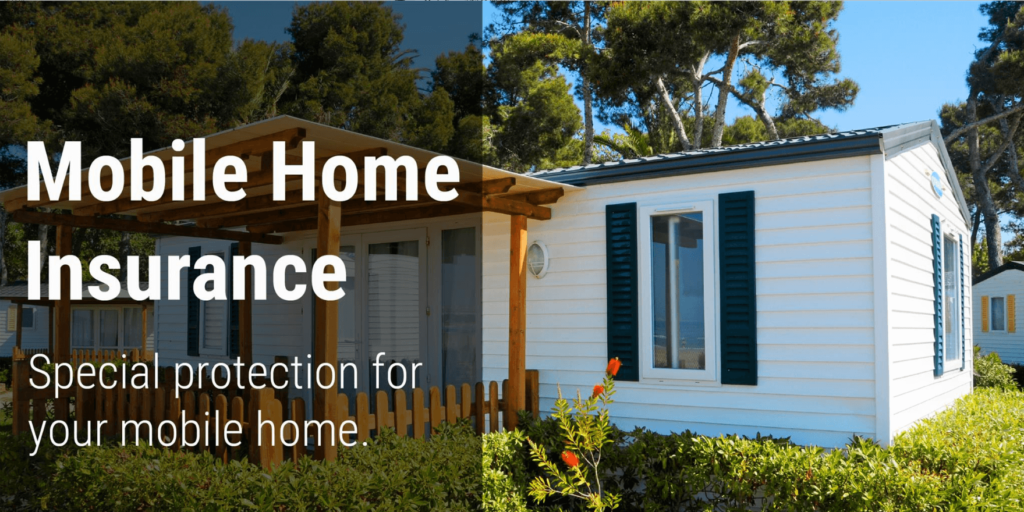Uncategorized
Mobile Home Insurance – Protecting Your Investment
Table of Contents
Mobile home insurance, also known as manufactured home insurance, is a critical safeguard for one of your most significant investments. Unlike traditional homeowners insurance, which is designed for site-built homes, mobile home insurance is specifically tailored to address the unique risks and characteristics of manufactured housing. While often more affordable than conventional home insurance, it provides essential protection against a range of perils, from natural disasters and fire to theft and personal liability. Understanding the nuances of mobile home insurance is paramount for any manufactured homeowner, whether you own your land or lease a lot in a community.
The manufactured housing industry has evolved significantly, with modern mobile homes built to stringent federal safety standards (HUD Code) that make them as safe and durable as many site-built homes. However, their construction, potential for relocation, and placement in communities often necessitate specialized insurance policies. Without adequate coverage, homeowners risk substantial financial loss in the event of unforeseen circumstances, jeopardizing their assets and financial stability.
This article will delve into the intricacies of mobile home insurance, outlining the types of coverage available, factors influencing premiums, how to choose the right policy, and common misconceptions. Whether you are purchasing a new manufactured home, looking to renew your existing policy, or simply seeking to understand your options, this guide will equip you with the knowledge to protect your valuable investment.
Understanding Mobile Home Insurance Coverage
Mobile home insurance policies are typically comprehensive, offering a blend of coverages similar to traditional homeowners insurance but adapted for manufactured homes. Key components usually include:
1. Dwelling Coverage
•Protection for the Structure: This is the core of your policy, covering the physical structure of your manufactured home, including the walls, roof, foundation (if applicable), and built-in appliances. It protects against damage from perils such as fire, windstorms, hail, lightning, vandalism, and falling objects.
•Attached Structures: Coverage often extends to attached structures like carports, garages, and decks that are permanently affixed to the home.
•Replacement Cost vs. Actual Cash Value:
•Replacement Cost (RCV): Pays to rebuild or repair your home with new materials of similar kind and quality, without deduction for depreciation. This is generally the preferred option as it provides more comprehensive protection.
•Actual Cash Value (ACV): Pays the depreciated value of your home at the time of loss. While cheaper, it may not be enough to fully replace your home.

2. Personal Property Coverage
•Protection for Your Belongings: This covers your personal possessions inside the mobile home, such as furniture, clothing, electronics, and other valuables. It protects against the same perils as dwelling coverage.
•On-Premises and Off-Premises: Your personal property is typically covered whether it’s inside your home or temporarily removed (e.g., while on vacation).
•Scheduled Personal Property: For high-value items like jewelry, art, or collectibles, you may need to add a separate endorsement or “floater” to ensure adequate coverage.
3. Personal Liability Coverage
•Protection Against Lawsuits: This coverage protects you financially if you are found legally responsible for bodily injury or property damage to others that occurs on your property or is caused by your actions (or the actions of your household members or pets).
•Medical Payments: Often includes a small amount of coverage for medical expenses for guests injured on your property, regardless of fault.
4. Other Essential Coverages
•Other Structures Coverage: Protects detached structures on your property, such as sheds, detached garages, or fences, that are not connected to your mobile home.
•Loss of Use (Additional Living Expenses): If your mobile home becomes uninhabitable due to a covered loss, this coverage pays for temporary living expenses, such as hotel stays, meals, and other necessary costs, while your home is being repaired or rebuilt.
•Debris Removal: Covers the cost of removing debris after a covered loss.
•Trees, Shrubs, and Other Plants: Provides limited coverage for damage to landscaping caused by certain perils.
Factors Influencing Mobile Home Insurance Premiums
Several factors determine the cost of your mobile home insurance premium. Understanding these can help you find ways to reduce your costs:
1. Location
•Geographic Risks: Areas prone to natural disasters like hurricanes, tornadoes, earthquakes, or floods will have higher premiums. Proximity to fire hydrants and fire stations can also affect rates.
•Crime Rates: High crime areas may lead to higher premiums due to increased risk of theft and vandalism.
2. Home Characteristics
•Age of Home: Newer mobile homes, built to more stringent HUD standards, often qualify for lower premiums than older homes.
•Type of Home: Single-wide, double-wide, or triple-wide homes may have different premium structures, with larger homes potentially costing more to insure.
•Construction Materials: The type of materials used in construction can influence risk and, therefore, premiums.
•Permanent Foundation: Mobile homes on permanent foundations may be eligible for more favorable rates, sometimes even qualifying for traditional homeowners insurance.
3. Safety and Security Features
•Fire Protection: Smoke detectors, fire extinguishers, and sprinkler systems can lead to discounts.
•Security Systems: Burglar alarms, deadbolt locks, and security cameras can reduce premiums.
•Tie-Downs and Anchoring: Proper anchoring systems that secure the mobile home to the ground can reduce damage from wind and storms, leading to lower rates.
4. Coverage Choices
•Deductible: Choosing a higher deductible (the amount you pay out-of-pocket before your insurance kicks in) will lower your premium, but means higher out-of-pocket costs if you file a claim.
•Coverage Limits: The amount of coverage you choose for dwelling, personal property, and liability will directly impact your premium.
•Endorsements/Riders: Adding extra coverage for specific perils (e.g., flood, earthquake) or high-value items will increase your premium.
5. Claims History
•Past Claims: A history of frequent claims can lead to higher premiums or even difficulty obtaining coverage.

How to Choose the Right Mobile Home Insurance Policy
Selecting the right policy requires careful consideration of your needs and a thorough comparison of options:
1. Assess Your Needs
•Home Value: Determine the replacement cost of your mobile home and its attached structures. Don’t underestimate this value.
•Personal Property Value: Inventory your belongings to estimate their total value. Consider taking photos or videos for documentation.
•Risk Assessment: Evaluate your location’s exposure to specific perils (e.g., hurricanes, wildfires, floods). This will help you decide on necessary endorsements.
2. Shop Around and Compare Quotes
•Multiple Providers: Don’t settle for the first quote. Contact several insurance companies that specialize in manufactured home insurance. Companies like Foremost, American Modern, and Assurant are often prominent in this market.
•Independent Agents: Work with an independent insurance agent who can compare policies from multiple carriers on your behalf.
•Online Comparison Tools: Utilize online tools to get quick quotes, but always follow up with an agent to understand the full policy details.
3. Understand the Policy Details
•Perils Covered: Clearly understand what perils are covered and, more importantly, what is excluded (e.g., flood and earthquake are almost always separate policies).
•Deductibles: Be comfortable with the deductible amount you choose. Can you afford to pay it if a claim arises?
•Limits and Sub-limits: Check the coverage limits for each section (dwelling, personal property, liability) and be aware of any sub-limits for specific items (e.g., jewelry, firearms).
•Exclusions: Pay close attention to the exclusions section of the policy. This outlines what is NOT covered.
4. Consider Additional Coverages
•Flood Insurance: Standard mobile home insurance does not cover flood damage. If you are in a flood-prone area, you will need a separate flood insurance policy, typically through the National Flood Insurance Program (NFIP).
•Earthquake Insurance: Similar to flood, earthquake damage is usually excluded and requires a separate policy.
•Identity Theft Protection: Some insurers offer this as an add-on.
•Home Business Coverage: If you run a business from your mobile home, your standard policy may not cover business-related losses or liability. You may need a separate business policy or endorsement.
5. Review Annually
•Life Changes: Review your policy annually or whenever significant life changes occur (e.g., major renovations, new valuable purchases, changes in family structure). Your coverage needs may change.
•Market Changes: Insurance rates and available coverages can change. An annual review ensures you still have the best policy for your needs and budget.
Common Misconceptions About Mobile Home Insurance
Misconception 1: My Homeowners Insurance Covers My Mobile Home
•Reality: Standard homeowners insurance policies are designed for site-built homes and typically do not cover manufactured homes due to differences in construction, valuation, and risk profiles. You need a specialized mobile home insurance policy.
Misconception 2: My Mobile Home is Covered by My Auto Insurance During a Move
•Reality: While your mobile home is on wheels, it is not covered by your auto insurance during transport. You need specialized transit insurance, often provided by the mobile home moving company, or a specific endorsement on your mobile home policy.
Misconception 3: My Mobile Home is Too Old to Insure
•Reality: While older mobile homes may be more challenging to insure and might have higher premiums, many insurers still offer coverage. You may need to demonstrate that the home is well-maintained and meets certain safety standards.
Misconception 4: I Don’t Need Insurance if I Don’t Have a Mortgage
•Reality: While a lender may not require insurance if you own your home outright, it is still a crucial financial protection. Without it, you would be solely responsible for the costs of repairs or replacement after a loss.
Misconception 5: My Mobile Home Park Insurance Covers My Home
•Reality: The mobile home park’s insurance typically covers the common areas, infrastructure, and liability for the park itself. It does NOT cover your individual mobile home or your personal property. You are responsible for insuring your own home.
The Future of Mobile Home Insurance
As manufactured housing continues to evolve with advanced construction techniques, smart home technology, and increased integration into traditional neighborhoods, the insurance landscape will also adapt. We can expect to see:
•More Tailored Policies: Insurers will likely offer even more granular policies that account for specific features like permanent foundations, energy-efficient upgrades, or smart home integrations. Manufactured home insurance
•Technology-Driven Premiums: Data from smart home devices (e.g., leak detectors, security cameras) could influence premiums, rewarding homeowners for proactive risk mitigation.
•Increased Accessibility: As manufactured homes gain broader acceptance, more mainstream insurers may enter the market, potentially leading to more competitive pricing and wider availability of coverage.
•Focus on Resilience: With changing climate patterns, there will be an increased emphasis on insuring homes built with enhanced resilience features against specific natural disasters.
Ultimately, mobile home insurance is an indispensable tool for protecting your investment and ensuring your financial security. By understanding your options and choosing a policy that aligns with your needs, you can enjoy the peace of mind that comes with knowing your home is well-protected.
Frequently Asked Questions About Mobile Home Insurance
Is mobile home insurance required?
If you have a loan on your mobile home, your lender will almost certainly require you to carry insurance. Even if you own your home outright, it is highly recommended to protect your significant investment.
How much does mobile home insurance cost?
Premiums vary widely based on location, home value, age, and coverage choices. On average, mobile home insurance can range from 300to300 to 300to1,000 per year, but can be higher in high-risk areas or for more comprehensive coverage.
Does mobile home insurance cover floods or earthquakes?
Standard mobile home insurance policies typically exclude flood and earthquake damage. You will need to purchase separate policies for these perils if you live in an area prone to them.
Can I get mobile home insurance if my home is older?
Yes, it is often possible to get insurance for older mobile homes, though you may have fewer options and potentially higher premiums. Insurers may require an inspection to ensure the home is well-maintained and safe.
What is the difference between ACV and RCV in mobile home insurance?
Actual Cash Value (ACV) pays the depreciated value of your home or belongings at the time of loss. Replacement Cost Value (RCV) pays to replace or rebuild your home/belongings with new items of similar kind and quality, without deduction for depreciation. RCV offers more comprehensive protection.
Find your next rental with our list of 2 bedroom mobile homes for rent.
Check availability of 3 bedroom mobile homes for rent near me.
Explore cheap mobile homes for rent near me to save more.
Upgrade to eco-living with a smart mobile home that suits your lifestyle.
Conclusion: Protecting Your Manufactured Home Investment
Mobile home insurance is a vital component of responsible manufactured home ownership. It provides the financial security and peace of mind necessary to protect your valuable asset against a wide range of unforeseen events. By understanding the types of coverage, factors influencing premiums, and how to choose the right policy, you can ensure your mobile home and its contents are adequately protected.
Don’t leave your investment vulnerable. Take the time to research, compare, and select a comprehensive mobile home insurance policy that meets your specific needs, allowing you to enjoy the benefits of manufactured home living with confidence. Mobile home coverage
For expert guidance on mobile home insurance and to explore coverage options, contact TrailerHousesForRent.com at (657) 224-3173 or connect with our recommended insurance partners.

